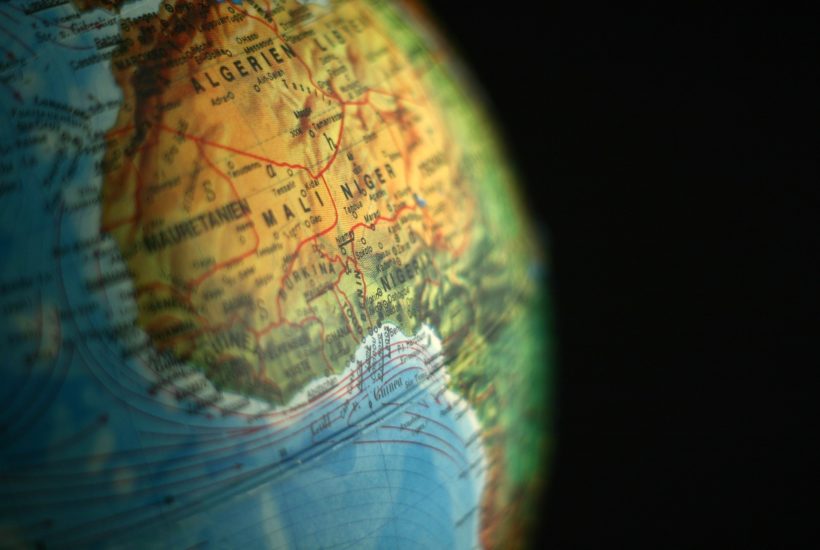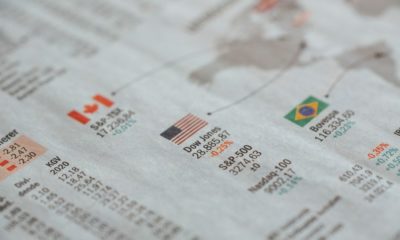Africa
Mali has signed the debt moratorium with the Paris Club
A total of 77 countries are eligible for the Paris Club moratorium, granted because of the coronavirus crisis. Experts and economists fear in particular that this one-year moratorium could close access to the debt market for these countries or push the rating agencies to downgrade their debt ratings. Mali is the first of the 49 African countries eligible to sign the moratorium.

It is a long and time-consuming process, and all countries are well aware of this. After Nepal, Dominica, and Grenada, it is Mali’s turn to sign the moratorium with the Paris Club, following the G20’s decision to suspend debt servicing this year. In this way, Mali is becoming the first African country among the 41 eligible to sign it.
The French Ministry of Finance confirmed the information on Tuesday, May 19th: “We already have four countries that have signed the moratorium with the Paris Club,” a Ministry source said. To explain this slight delay, some experts say that the countries want to discuss with the downstream rating agencies to ensure that there is no impact on their ratings.
Experts and economists fear in particular that this one-year moratorium, announced on April 15th and in which the G20 called on private creditors to participate, could close access to the debt market for these countries or push the rating agencies to downgrade their debt ratings.
Find out more details about the possibility of African countries to suspend their debts this year and read the most important economic news with the Born2Invest mobile app.
First response to the economic emergency
The same source quoted by AFP said that 20 other countries were currently in a phase of “finalizing documents” in order to sign an agreement with the Paris Club. According to a source close to the dossier, Pakistan, Ethiopia, the Democratic Republic of Congo, Congo-Brazzaville, Cameroon, and Mauritania are also on the verge of obtaining a moratorium.
A total of 77 countries are eligible for this moratorium, granted because of the coronavirus crisis. “We expect a few dozen more countries to apply in the coming days,” the French source added, but recalled that the moratorium was “a temporary suspension” and that “the money was intended to be reimbursed later.”
The same source explained that “the sums not paid in 2020 will be reimbursed in three years out of 2022, 2023 and 2024, after a blank year in 2021,” stressing that 41 of the 49 sub-Saharan African countries were eligible for this moratorium. In total, for all these 41 African countries, maturities expiring this year amount to $19 billion, almost half of the total of $36 billion for all 77 eligible countries.
For Mali, this postponement of payment will make it possible to save an amount estimated at $38.5 million (23 billion CFA francs), which will be paid over four years from the end of the debt service suspension. If all Mali’s other bilateral creditors were to join the initiative, the total amount of the deferral would be $55.4 million (33.2 billion CFA francs).
The countries could spend the money to overcome the crisis
In mid-April, the 22 creditors of the Paris Club and emerging creditors, including countries such as China, India, Saudi Arabia, Turkey and South Africa, agreed to suspend debt service payments to the poorest countries. The G20 estimates that the suspension of debt payments provides a total of $20 billion that these countries can spend to combat the impact of the COVID-19 pandemic.
The Paris Club, founded in 1956, is an “informal group” of so-called “industrialized” countries, including France, the United States, Germany, Japan and Switzerland. The aim of this multilateral institution is to enable “creditors to recover their outstanding debts and to find an effective and rapid solution to sovereign debt crises”.
__
(Featured image by Peggy_Marco via Pixabay)
DISCLAIMER: This article was written by a third party contributor and does not reflect the opinion of Born2Invest, its management, staff or its associates. Please review our disclaimer for more information.
This article may include forward-looking statements. These forward-looking statements generally are identified by the words “believe,” “project,” “estimate,” “become,” “plan,” “will,” and similar expressions. These forward-looking statements involve known and unknown risks as well as uncertainties, including those discussed in the following cautionary statements and elsewhere in this article and on this site. Although the Company may believe that its expectations are based on reasonable assumptions, the actual results that the Company may achieve may differ materially from any forward-looking statements, which reflect the opinions of the management of the Company only as of the date hereof. Additionally, please make sure to read these important disclosures.
First published in LePoint Africa, a third-party contributor translated and adapted the article from the original. In case of discrepancy, the original will prevail.
Although we made reasonable efforts to provide accurate translations, some parts may be incorrect. Born2Invest assumes no responsibility for errors, omissions or ambiguities in the translations provided on this website. Any person or entity relying on translated content does so at their own risk. Born2Invest is not responsible for losses caused by such reliance on the accuracy or reliability of translated information. If you wish to report an error or inaccuracy in the translation, we encourage you to contact us.

-

 Cannabis2 weeks ago
Cannabis2 weeks agoKONOPEX Expo 2026: Celebrating Europe’s New Era of Legal Cannabis
-

 Biotech3 days ago
Biotech3 days agoVolatile Outlook for Enlivex Therapeutics as Investors Await Clinical Catalysts
-

 Impact Investing1 week ago
Impact Investing1 week agoInter IKEA Launches Electric Truck Fleet to Decarbonize Heavy-Duty Logistics in Italy
-

 Markets5 days ago
Markets5 days agoCotton Market Weakens Amid Demand Concerns and Bearish Trends

























